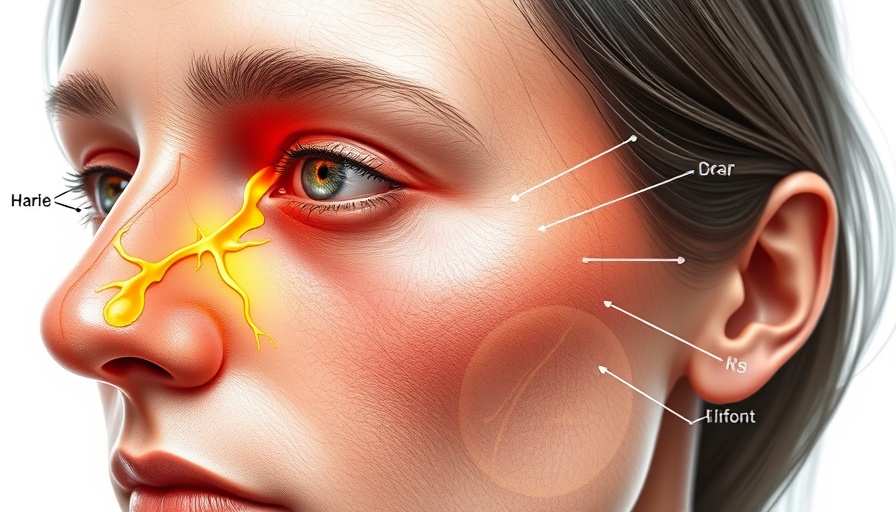
The Intricacies of Geniculate Herpes Zoster
Geniculate herpes zoster, commonly associated with Ramsay Hunt syndrome, emerges as a complex condition that integrates aspects of neuropathic pain, facial paralysis, and auditory dysfunction. This syndrome arises when the varicella-zoster virus, the same virus that causes chickenpox, reactivates in the geniculate ganglion. Understanding this condition is crucial for anyone, including digital nomads, who may be at risk of various health issues while traveling.
Understanding the Background of Ramsay Hunt Syndrome
Ramsay Hunt syndrome occurs when the varicella-zoster virus affects the facial nerve near the ear, leading to painful rashes, hearing difficulties, and muscle weakness in the face. For digital nomads, awareness is key to prevention. Stressful travel, new environments, and potential exposures may trigger a reactivation of the herpes virus, resulting in this debilitating condition. Knowing the symptoms is vital.
The Social Impact: Why Awareness Matters
For those living a nomadic lifestyle, health is often overlooked in the hustle to explore new cities and cultures. Understanding geniculate herpes zoster is invaluable as its repercussions can lead to inertia: missing out on adventures due to medical emergencies. Raising awareness about the importance of preventive healthcare during travels can empower nomads to seek timely treatment and maintain an active lifestyle.
Recognizing Symptoms: The First Steps to Action
Early recognition of Ramsay Hunt syndrome symptoms is essential. Symptoms can include immediate ear pain, a rash in or around the ear, facial muscle weakness, and hearing loss or altered sense of taste. Understanding these signs can prompt quicker visits to healthcare providers, enabling timely treatment and recovery. For nomads, knowing where to access healthcare services abroad also plays a key role in managing these risks.
Future Predictions & Trends in Healthcare Abroad
As global mobility increases, digital nomads can expect healthcare technologies to evolve to meet their needs better. Telehealth services are on the rise, providing access to medical professionals specializing in travel-related health issues and conditions like Ramsay Hunt syndrome. The more informed that nomads become about available resources, the more effectively they can manage their health, no matter where they are located.
Unique Benefits of Knowledge: Empowerment Through Understanding
Having information about geniculate herpes zoster empowers individuals to make informed decisions regarding their health. From strategies that minimize stress during travels to recognizing when to seek medical help, knowing about this condition can enhance a digital nomad’s experience. Increased health literacy allows nomads to prioritize health without compromising their adventurous lifestyles.
Actionable Insights: Proactive Steps Toward Well-Being
For digital nomads, a proactive approach to health can include strategies such as ensuring adequate rest, maintaining a balanced diet, and avoiding overexertion while traveling. Investing in a good workspace and taking regular breaks can also significantly reduce stress, leading to a lower chance of health issues. Additionally, scheduling regular health check-ups can provide peace of mind and keep potential issues at bay.
Emotional Aspects: How This Condition Affects Lives
The emotional toll of health conditions like Ramsay Hunt syndrome can be profound. The sudden onset of symptoms can lead to anxiety and fear about one’s future, particularly for nomads who often juggle work and exploration. Therefore, fostering a supportive community and sharing experiences can greatly alleviate the emotional burden associated with such health challenges.
 Add Row
Add Row  Add
Add 




Write A Comment